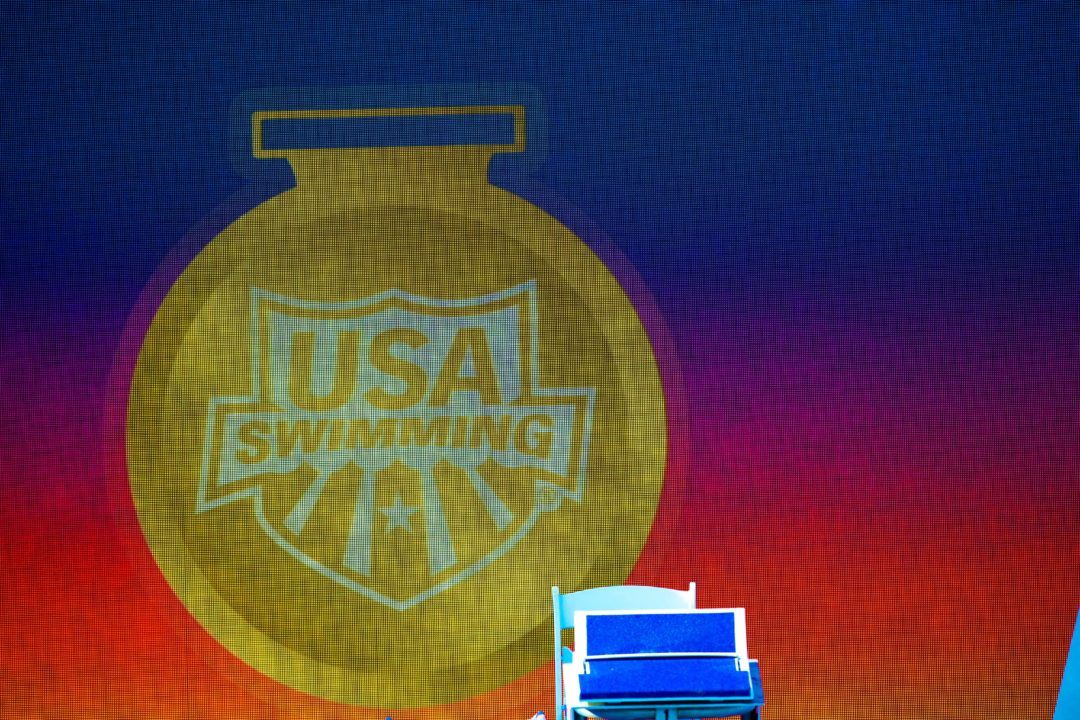With the COVID-19 pandemic drastically reshaping the landscape of athletics, USA Swimming is moving forward with several new programs, including an extension of insurance coverage and ‘enterprise’ licenses with Zoom.
Insurance Extension
With pools shut down and most states holding to stay-at-home orders, swim clubs have had to get creative to both stay connected to their athletes, and to keep their coaches and staff working and earning income. One major issue has been remote coaching, typically for ‘dryland’ workouts. In mid-March, USA Swimming notified clubs that some organized activities could void the club’s USA Swimming-based insurance – specifically, organized physical training where a coach doesn’t have a direct line of sight to participating athletes.
The gap in USA Swimming’s insurance caused at least one LSC to buy a supplementary insurance policy to cover remote dryland. But USA Swimming also revealed that in late March, it had worked with its insurer to extend the general USA Swimming insurance to cover remote or virtual dryland training.
The key points of that insurance:
- Coaches need to be able to see the athletes and coach them in real-time – pre-recorded videos with no live, two-way interaction are not covered.
- Activities will need at least one coach per eight athletes.
- Virtual dryland still has to comply with the MAAPP rules for digital communication, meaning there must be another adult on the communication when a coach is connecting with minor athletes.
- Only USA Swimming members can participate in the virtual dryland
- Virtual dryland must take place between 8 AM and 8 PM, and can’t be on a social media platform. (USA Swimming specifically mentions Zoom, Google and Skype as acceptable platforms).
Zoom Licenses
In the coronavirus era, Zoom has become a go-to media platform for virtual communication. But not all clubs have been able to afford Zoom licenses to host team meetings or virtual dryland training sessions.
We talked to USA Swimming’s Managing Director of Sport Development, Joel Shinofield, who says USA Swimming is helping those clubs or LSCs obtain Zoom licenses.
An email from one LSC specifically mentioned ‘enterprise’ licenses, which is Zoom’s largest meeting plan that allows for up to 500 participants.
Bouncing Back As A Sport After Quarantine
Shinofield said USA Swimming is already putting plans in place to help clubs start back up again both safely and efficiently when the quarantine period finally ends.
USA Swimming staff is already meeting with coaches to run through the process of starting back up with practices and events when it’s safe to do so.
“We’re urging them to meet with their local health department and their facilities to come up with a plan for how they can return to practice within the parameters that are set up within their state or within their local jurisdiction,” Shinofield said. The next step will be developing multiple plans, based on different numbers of participants that might be allowed to come together as a group in the early stages of return from the pandemic.
“We’re looking at probably shorter practices so that you can run several groups through,” Shinofield said. “We envision that at the beginning, when they come back, there will be an adapted nature to running practices for sure.”
The marketing department is also working on toolkits to help clubs and LSCs on social media and local print media after the pandemic.
Other programs
Shinofield mentioned a number of other initiatives that USA Swimming is working on to support clubs, athletes, and coaches:
- Mental health resources for coaches: Shinofield says the organization has taken special effort to support coaches who don’t have health insurance right now. “Knowing the mental stress right now that’s taking place, and the significant challenges that people are facing out there,” Shinofield said, USA Swimming extended its Employee Assistance Program to offer mental health resources to coaches. “It’s the same plan that we have as employees at USA Swimming,” Shinofield said. During the pandemic, coaches will have free access to online mental health support and the ability to talk to a counselor online if needed.
- Transitioning summits & experiences to online: The pandemic has forced USA Swimming to transition a number of its camps and clinics to the digital space, including the We LEAD and She LEAD Summits: “We’ve kept the facilitators that we’ve hired in the past,” Shinofield said, “and we’ve moved the content to online to make sure people can still have those experiences.”
- Navigating LSC bylaws: some LSCs have struggled to navigate their bylaws while working to hold digital meetings and move forward on initiatives to helps clubs and members. USA Swimming is providing expertise for LSCs looking to better work within their own bylaws.
- A note on LSC reserves: Shinofield also addressed one complaint some have had about LSC efforts to help their clubs financially. While some have questioned why certain LSCs have large reserves of funds, Shinofield says those LSCs were actually instructed to build up reserves for just such a time as this: “Decades ago, the LSCs were told to start building up some reserves so that those reserves could be used on a rainy day, and here we are in that rainy day.”
